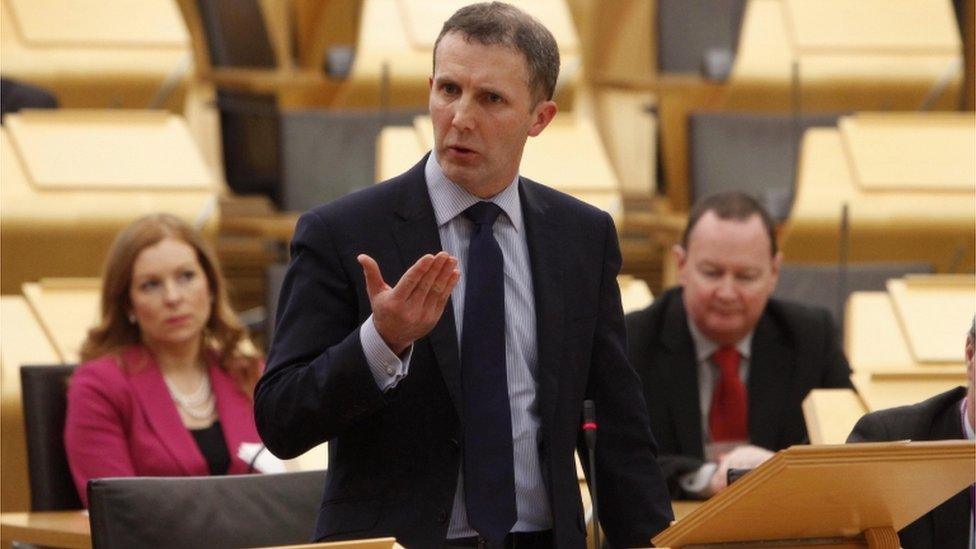Terminological inexactitude
- Published
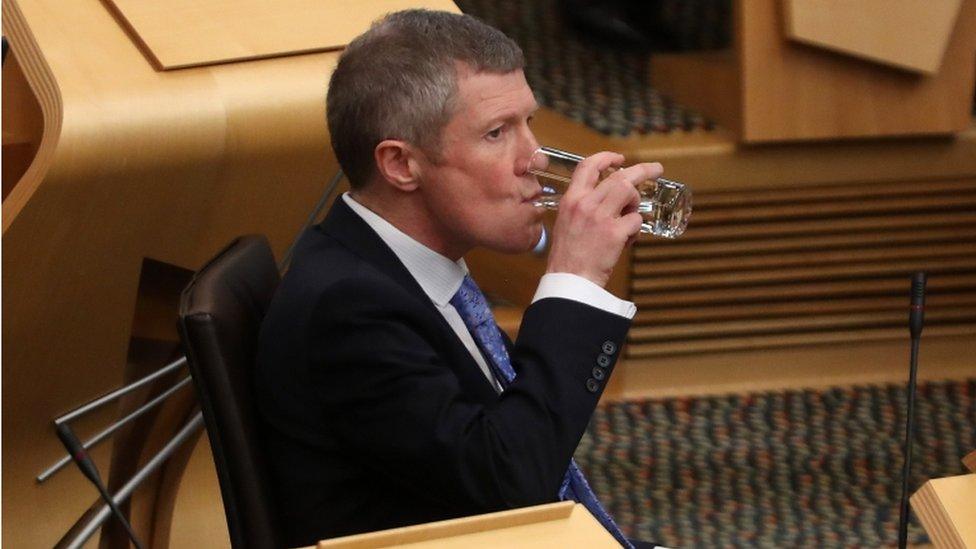
Mr Rennie was rebuked by the presiding officer for accusing Ms Sturgeon of lying about the children's ward
The great constitutionalist, Walter Bagehot, divided the affairs of state into two broad sectors, the dignified and the efficient.
The first might be roughly characterised as pomp and pageantry, the circus of politics felt necessary to impress and, in less enlightened times, subdue the citizenry. The second was the daily work of governance.
At Holyrood today, we witnessed both these facets, albeit in their modern guise. With a few additions, to the dismay of the Presiding Officer Ken Macintosh.
Those additions? The use, deplored by the PO, of what might be called "unparliamentary language", delivered by Willie Rennie, he who leads the Liberal Democrats, and his interlocutor, the first minister.
I say "what might be called" for a reason. Holyrood, of course, has standing orders. But it has always seemed to me that it lacked clear, precise and precedented rules on what might and, more importantly, should not be said.
Broadly, without saying so, MSPs borrow these rules from Westminster, sans the Honourable Member appendages so beloved of the Commons.
So you cannot call an H.M. "a liar". (Churchill used to get round this by accusing opponents of resorting to a "terminological inexactitude.")
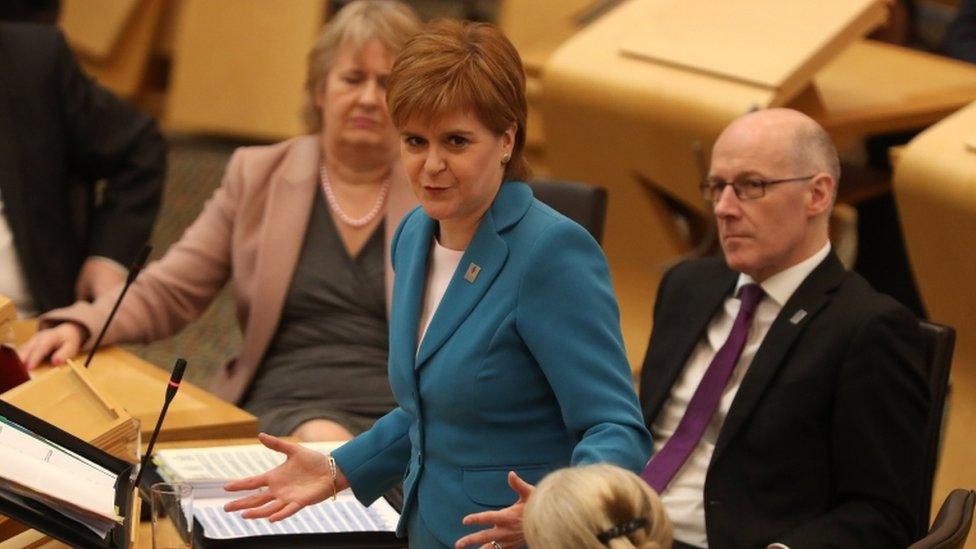
Ms Sturgeon was also told off for describing Mr Rennie as a "pathetic attention-seeker"
And, it seems, same goes for MSPs. Mr Rennie said that the FM had lied to the citizens over the question of the children's ward at the Royal Alexandra Hospital in Paisley.
Earlier, Richard Leonard, the Labour leader, had approximated to the same point. Earlier still, on a different topic, Ruth Davidson, the Conservative leader, had talked of declining trust. In essence, making the same broad claim.
But Mr Rennie decided to go straight for the jugular. The FM had lied. In response, Nicola Sturgeon suggested that Mr Rennie was a "pathetic attention seeker". (I'm sure she meant "pathetic" in its classical sense of "arousing empathy". Aren't you?)
Anyway, both comments stirred the PO. He suggested that they might usefully moderate their language. They duly did so. A little.
Heard to mutter
The incident exasperated the governing side somewhat. One or two were heard to mutter later to the effect that the PO should have intervened more forcefully. Perhaps Mr Macintosh will respond.
And the substance? Mr Rennie asserted that Ms Sturgeon had given a categorical assurance with regard to the future of the children's ward at the RAH.
The FM said she had done no such thing. She had supported the general principle of localism - and had noted that, at the time, there was no tabled proposal to close the ward.
When such a proposal emerged, her government had taken the advice of clinicians. What, she noted to Mr Rennie and Mr Leonard, would you do?
This is a tough one for ministers - but, of course, tougher still for families affected who will pay little heed to the nuances of parliamentary debate.
Again, it exemplifies the conundrum intrinsic to hospital provision. Does one want locality or expertise?
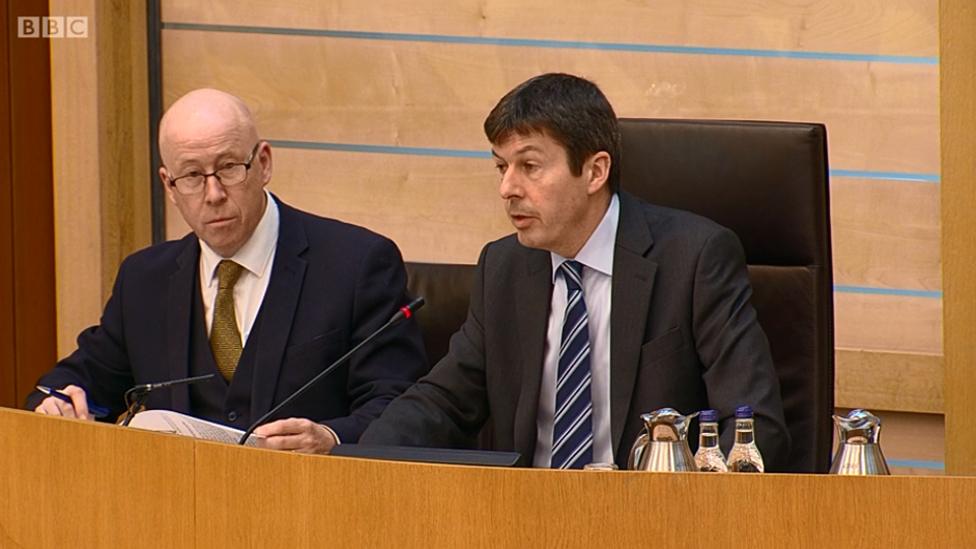
The presiding officer was visibly angered by some of the exchanges
From this, one turns to the efficient side of parliamentary debate in the shape of this afternoon's discourse about measures to address sectarianism in football.
You will recall that, in 2012, there was enacted a law on this topic. It followed substantial concern over scenes witnessed during Old Firm games in particular.
The Act, however, has never won the support or even the toleration of a section of football fans. Labour's James Kelly is now proposing repeal, having consulted widely and intensively.
His contribution in moving this proposal was customarily thoughtful and thorough. No bombast. An absence of triumphalism. Rather, an examination of the effectiveness - or otherwise - of the law.
Meticulous and insightful
In response, the minister, Annabelle Ewing, was also meticulous and insightful - while, in effect, acknowledging that the Act is doomed, at least in its present form.
Ms Ewing has several skills. One of them is undoubtedly numeracy. She saw the votes in the chamber stacked against her.
However, she persisted. The Act had been a sensible idea. Its absence would be noted. Not least among minority communities who welcomed the protection available from Section Six of the Act anent Online communications.
But the thrust of her contribution was mitigation. Ok, if the Act has to go, can it be kept in place by delaying the commencement order until a replacement is ready?
Perhaps a more widely drawn replacement. Perhaps one founded upon the report into hate crime currently being prepared by Lord Bracadale.
All of which, of course, is in parliament's hands. Just as parliament will this afternoon dispose of the existing Act, so parliament might be open to alternative proposals. We shall see.
Before the vote tonight - when repeal for the Football Act was backed - the presiding officer addressed the subject of language. Not in the stands, but at Holyrood.
He made plain that he was decidedly unhappy with the exchange during FMQs - and that words like "liar" should not be used.
However, he added that he did not want to become a linguistic referee. He hoped, instead, members would behave, voluntarily.
- Published23 January 2018
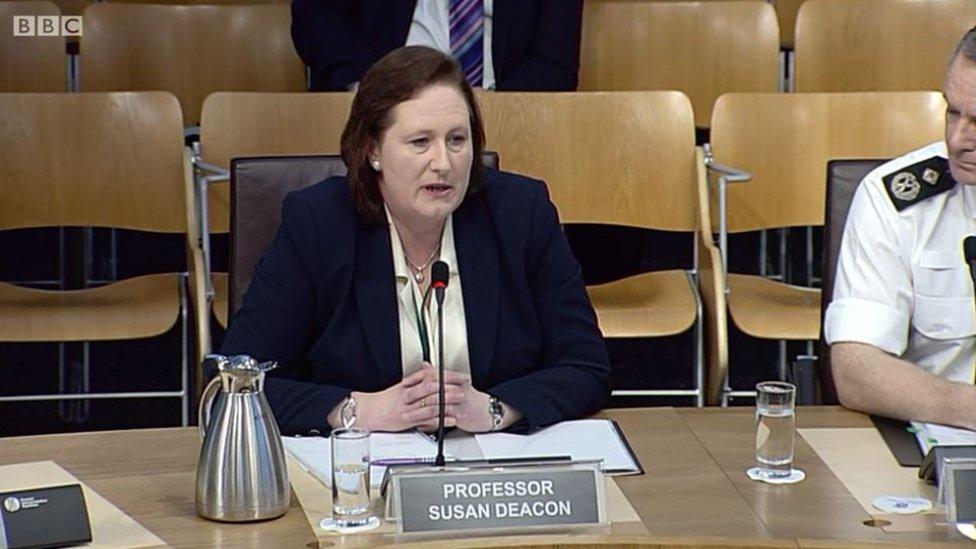
- Published18 January 2018
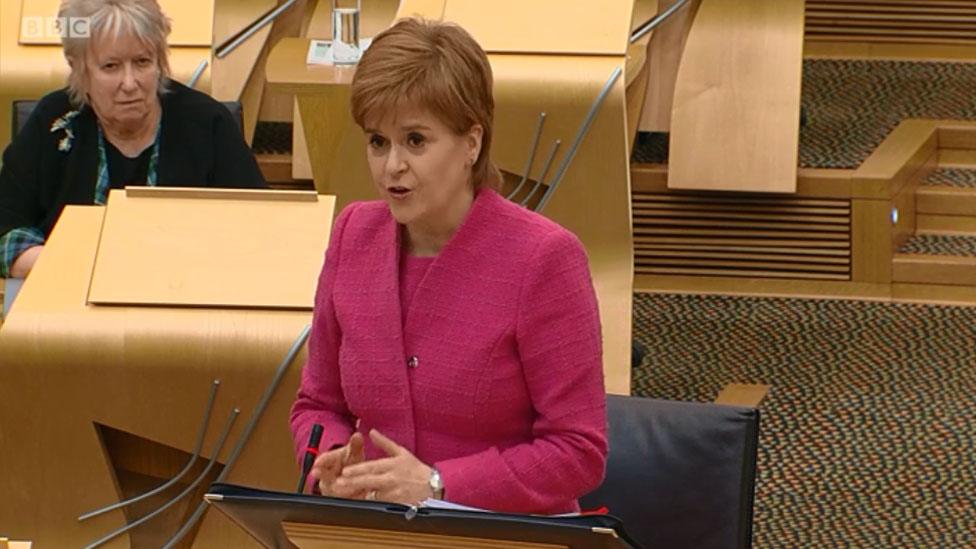
- Published14 January 2018
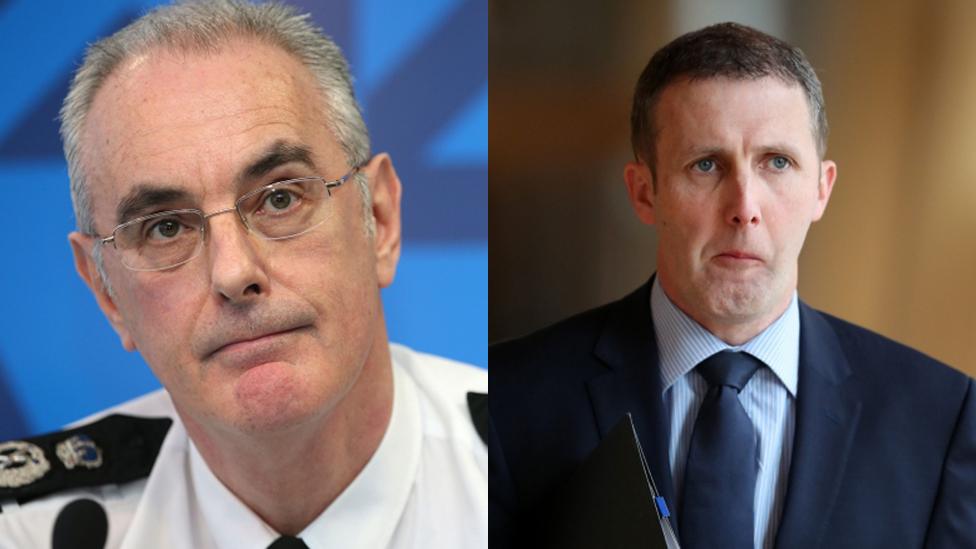
- Published11 January 2018
